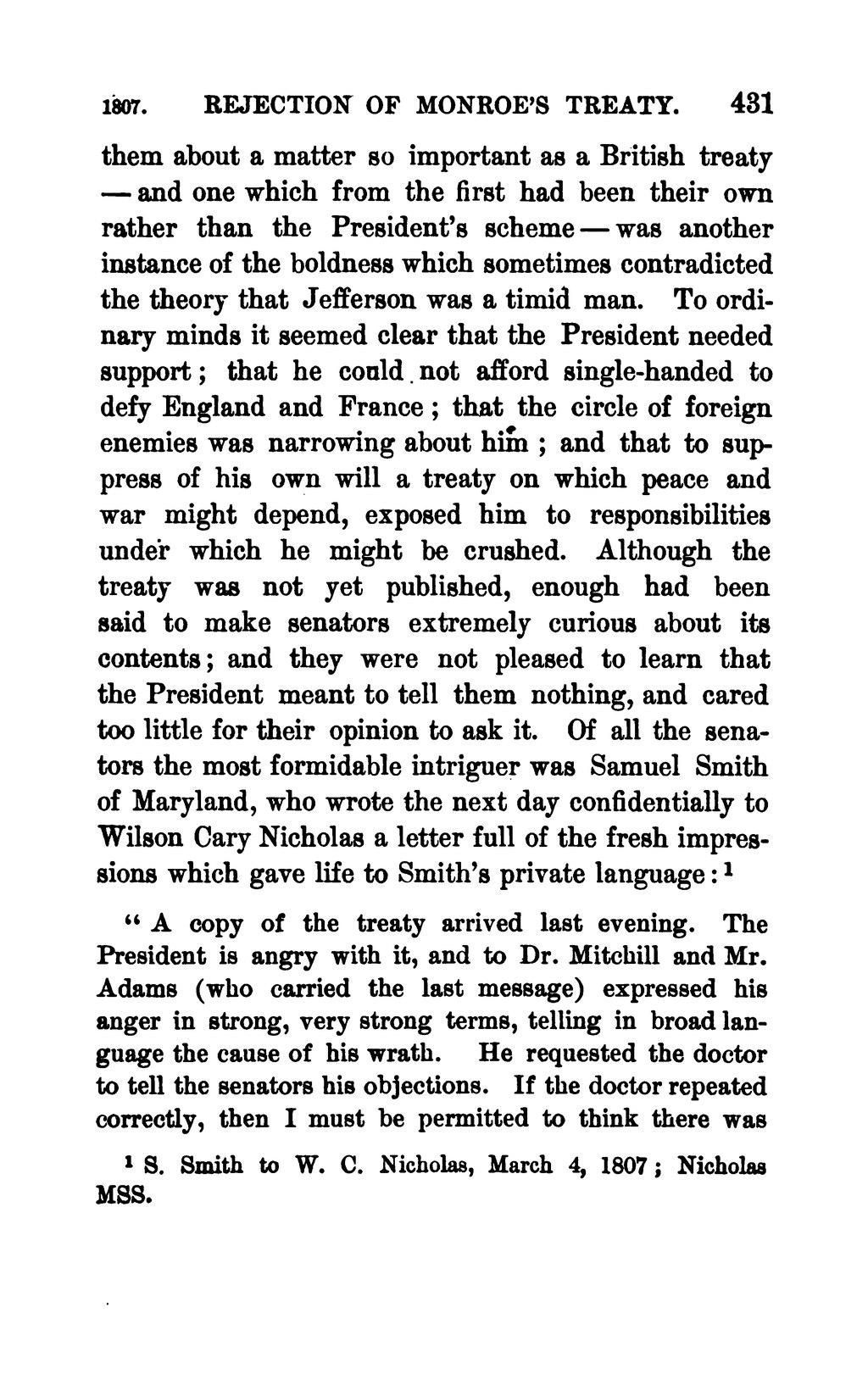them about a matter so important as a British treaty—and one which from the first had been their own rather than the President's scheme—was another instance of the boldness which sometimes contradicted the theory that Jefferson was a timid man. To ordinary minds it seemed clear that the President needed support; that he could not afford single-handed to defy England and France; that the circle of foreign enemies was narrowing about him; and that to suppress of his own will a treaty on which peace and war might depend, exposed him to responsibilities under which he might be crushed. Although the treaty was not yet published, enough had been said to make senators extremely curious about its contents; and they were not pleased to learn that the President meant to tell them nothing, and cared too little for their opinion to ask it. Of all the senators the most formidable intriguer was Samuel Smith of Maryland, who wrote the next day confidentially to Wilson Cary Nicholas a letter full of the fresh impressions which gave life to Smith's private language:[1]
- "A copy of the treaty arrived last evening. The President is angry with it, and to Dr. Mitchill and Mr. Adams (who carried the last message) expressed his anger in strong, very strong terms, telling in broad language the cause of his wrath. He requested the doctor to tell the senators his objections. If the doctor repeated correctly, then I must be permitted to think there was
- ↑ S. Smith to W. C. Nicholas, March 4, 1807; Nicholas MSS.
